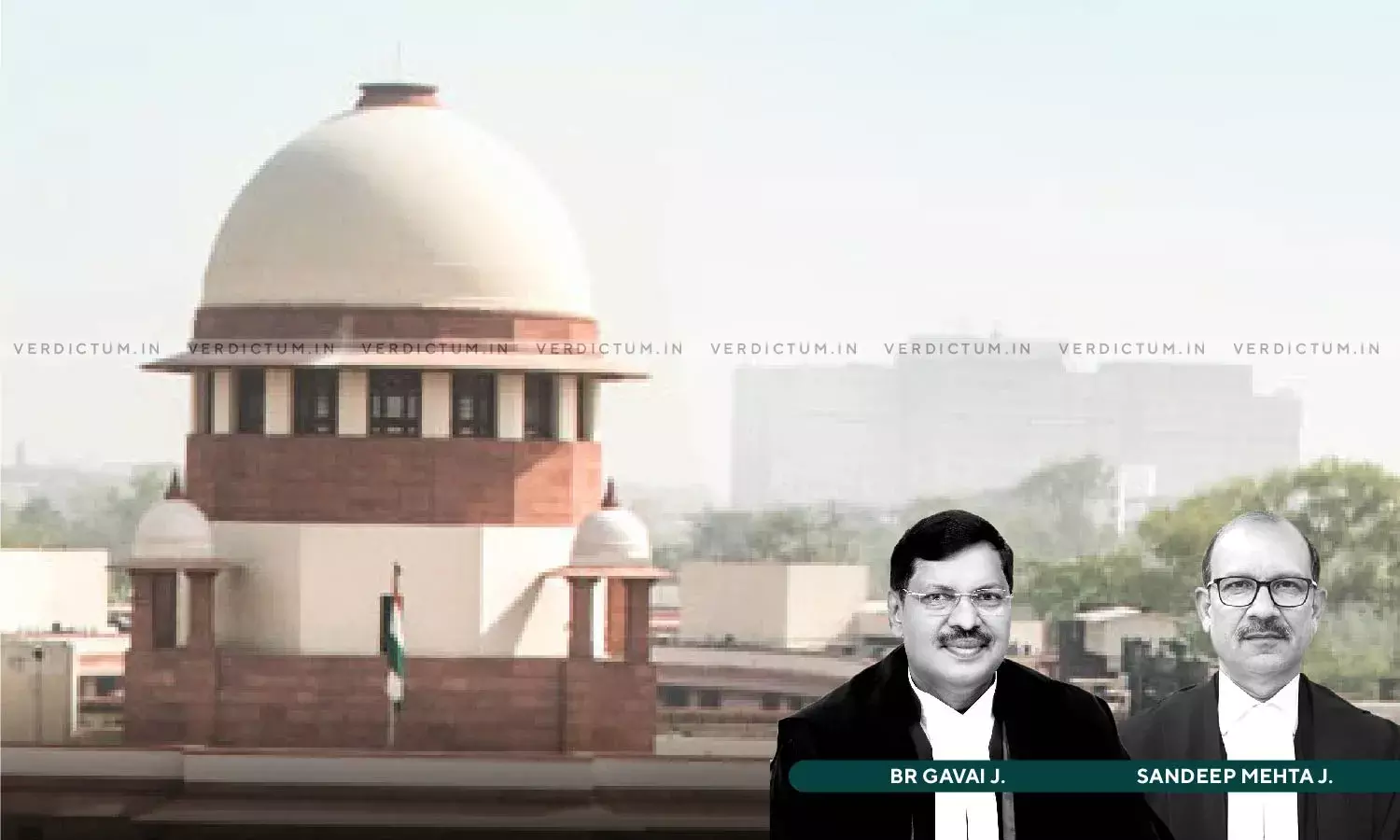Extra Judicial Confession Is A Weak Piece Of Evidence: Supreme Court Acquits Murder Accused

The Supreme Court said that extra judicial confession made by the accused is a weak piece of evidence and it can only be used as a corroborative piece of evidence in tandem with substantive evidence.
The Court was dealing with a criminal appeal preferred by a murder accused who was concurrently convicted under Section 302 of the Indian Penal Code (IPC).
The two-Judge Bench of Justice B.R. Gavai and Justice Sandeep Mehta observed, “However, Piare Lal was not examined by the prosecution and rather he was examined in defence. In his testimony, Piare Lal (DW-1) emphatically denied that any extra judicial confession was made by the accused in the presence of Ram Kumar (PW-8). Thus, the evidence of Ram Kumar (PW-8) regarding the extra judicial confession made by the accused is contradicted by the evidence of Piare Lal (DW-1). Even otherwise, extra judicial confession by its very nature is a weak piece of evidence. It may be used as a corroborative piece of evidence in tandem with substantive evidence.”
Advocate Rishi Malhotra represented the appellant/convict while Additional Advocate General Deepak Thukral represented the respondent/State.
Factual Background -
The appellant was convicted under Section 302 IPC for the offence of murder and was sentenced to life imprisonment along with a fine of Rs. 500/-. He challenged the judgment of the Trial Court in the Punjab and Haryana High Court but the court affirmed the order of conviction and sentence passed by the Sessions Judge. Hence, he approached the Supreme Court.
The prosecution case in nutshell was that in the year 1998, the deceased along with his brother and acquaintances went to a cinema. The appellant was also present there and he thrust a knife in the chest of the deceased, causing his instantaneous death and escaped leaving the knife behind. The motive attributed to the appellant for committing the offence was that he bore a suspicion in his mind that the deceased was involved in illicit relations with his wife.
The Apex Court in the above regard noted, “As per the first informant Krishan Kumar (PW-5), he along with other witnesses and the deceased was sitting in the first row of chairs. Thus, there was hardly any possibility that deceased Karambir after being stabbed with a knife would fall in between the seats of the first and second row. It is also highly improbable that the first informant-Krishan Kumar (PW-5) who was sitting on the seat adjacent to the one occupied by the deceased, would have failed to notice the commotion preceding the assault.”
Furthermore, the Court took note of the fact that when the body of the deceased was searched, only one ticket was found in his pocket and that his brother admitted that he did not get blood stains on his hands and clothes when he touched the body.
“There cannot be any doubt that witness-Krishan Kumar (PW 5) could not have decided at the first blush that his brother had expired as a result of the knife blow. The natural reaction expected from a brother in such a situation would have been to take immediate steps for taking the victim to the hospital so as to save his life. However, Krishan Kumar (PW-5) did not make any such attempt. In this background, we are of the view that the very presence of Krishan Kumar (PW-5) at the crime scene is doubtful and his testimony is not trustworthy”, it added.
The Court said that it would not be safe to rely on the evidence of the brother of the deceased as he clearly falls within the category of a wholly unreliable witness. It held that the prosecution failed to bring home the charge and establish the guilt of the appellant beyond reasonable doubt.
Accordingly, the Supreme Court allowed the appeal, quashed the impugned judgment, and acquitted the appellant.
Cause Title- Dharambir @ Dharma v. State of Haryana (Neutral Citation: 2024 INSC 307)
Appearance:
Appellant: AOR Rishi Malhotra, Advocates Jaydip Pati, and Utkarsh Singh.
Respondent: AAG Deepak Thukral, Advocate Gautam Sharma, and AOR Monika Gusain.


